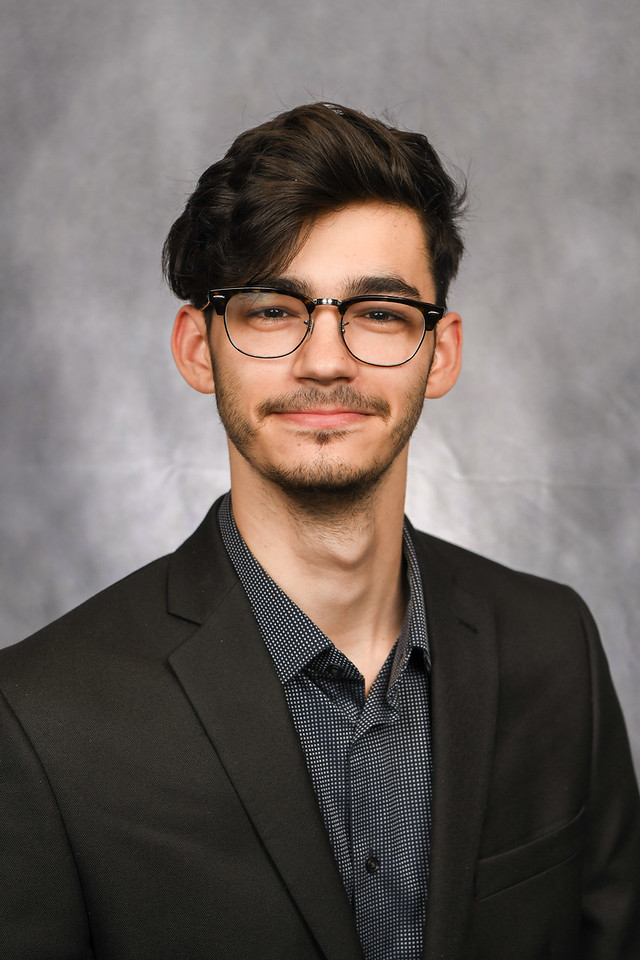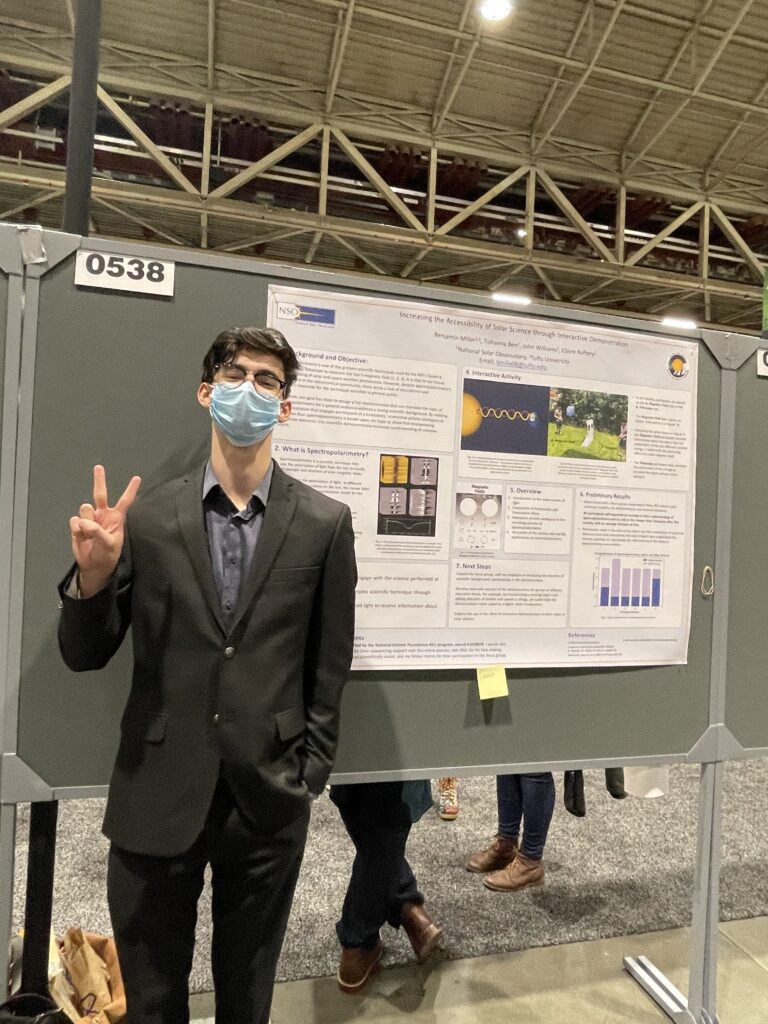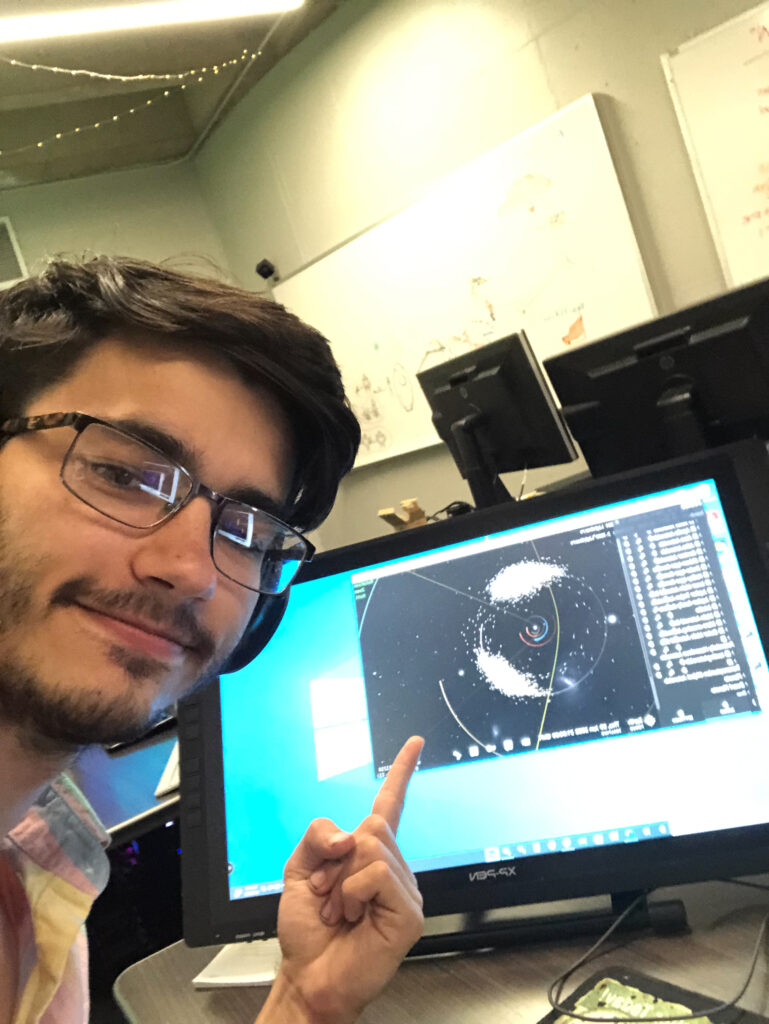


This summer we’re introducing interns in the RESESS, Geo-Launchpad, and USIP programs to shine a spotlight on the research projects they are completing throughout these 11-week internships and on their interests in geoscience.
Returning RESESS intern Ben Miller recently graduated from Tufts University, where he earned his bachelor’s degree in physics with a minor in mathematics. After enjoying physics class in high school, Ben decided to stick with the subject throughout college. It allowed him to take classes covering a broader range of topics while still able to explore astrophysics and space science. Ben’s participation in the RESESS program in 2020 was his introduction to geoscience, as he analyzed the presence of trace elements in mantle samples to model the pressure of the mantle. Last summer, Ben interned at the National Solar Observatory to develop educational public outreach materials for the Daniel K. Inouye Solar Telescope on Maui, Hawaiʻi. Ben is excited to continue exploring space science and outreach this summer through the RESESS program.
Dr. John Keller, director of the Fiske Planetarium and professor at the University of Colorado Boulder, is mentoring Ben this summer. Ben is examining stellar occultation, which is a technique through which scientists can obtain information about an object (which could be an exoplanet, asteroid, comet, planet, etc.) when it blocks light as it moves in front of a star. He is implementing this phenomenon into a universe simulation and visualization program called OpenSpace that is commonly used in planetariums. This open-source software can also be used to create instructional videos or even just explore the universe. In addition to implementing stellar occultation into OpenSpace, Ben is developing publicly available instructional materials to accompany the package. In addition to experts—like scientists at planetariums—being able to create visualizations for stellar occultation, Ben hopes that his outreach materials will allow anyone to create videos of this phenomenon, like teachers who want to teach their students about stellar occultation.
Q&A:
- What has been your favorite part of the RESESS program so far?
This time around it’s definitely just being here. The past two summers all of my internships have been remote, and while that’s nice in some cases, it’s nice to be able to immerse myself in a very different community and setting. I’m currently stationed at Fiske Planetarium, so when I go to work, I will literally walk to Fiske and have an office and there are people there. That’s definitely my favorite part so far. But overall, I like having a project. I like having some sort of work. It’s not as high stakes as a real job, but there’s still an expectation and goals, and something to work towards. I think that’s really nice and helps me move forward.
- What have you gained from your mentorship with Dr. Keller?
It’s always just good to have someone with a ton of experience in the field. In this case, the project that I’m working on was early on. It was, “Here’s a concept. Let’s talk you through it and then you can go start working on developing a model for it.” My mentor is definitely more focused on the conceptual side because the model is just something that I’m creating in a coding format that he’s not an expert in. I think definitely the biggest benefit I’ve had with my mentorship is just having someone to bounce ideas off of, someone who even if they don’t know the specifics of my project, they know enough about [the project] overall to be a helpful sounding board and can easily suggest ways for work.
- Have you learned about any new topics/research techniques that have really piqued your interest?
For example, the stellar occultation thing that I’m trying to implement. I’ve never actually gotten to observe one myself, but there’s a campaign going on in Australia right now to watch a couple occultations. I think it’d be very cool to try it myself. I’ve never had the chance to. I have pretty limited experience in actually operating a telescope, so I’d love to give that a shot.
Ben is hoping to gain additional experience in science education and space science over the next year. Afterwards, Ben hopes to pursue a master’s or doctorate degree in space science. This summer, Ben is moving back to his home city of Boston and is excited to get to spend some time exploring New York City with his friends.


